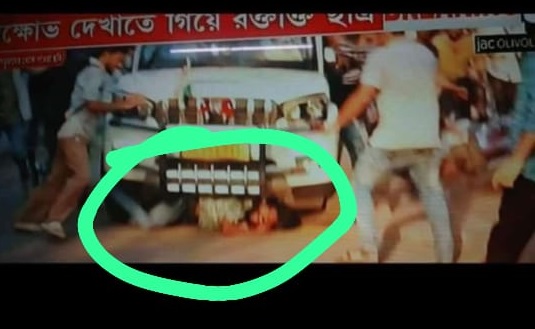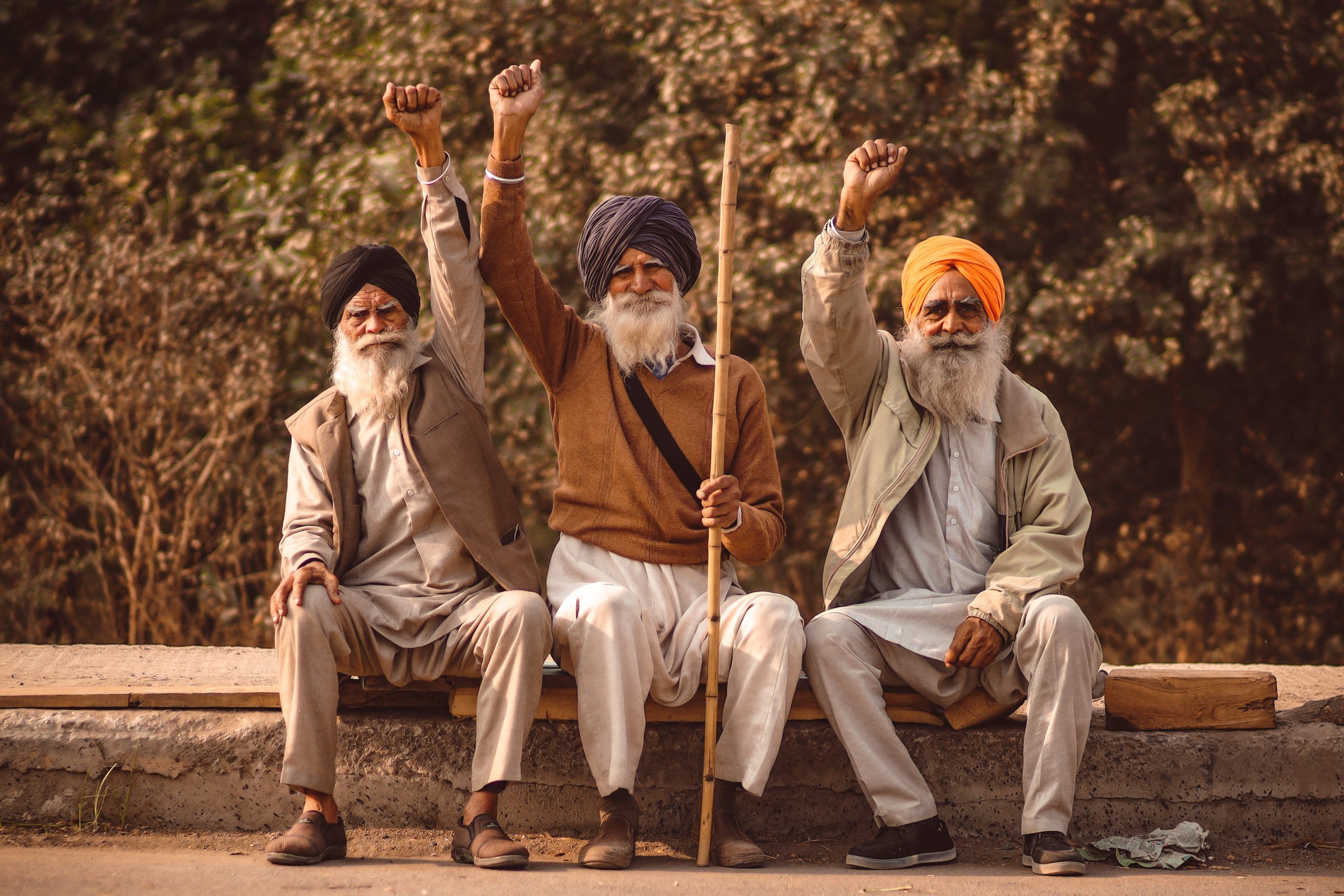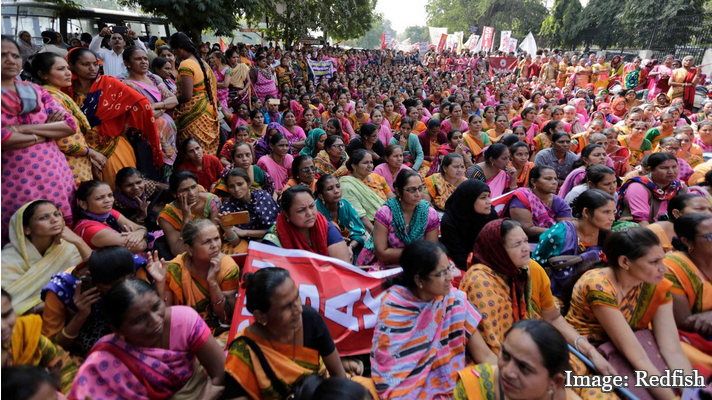Students at Jadavpur University have faced attacks by state-affiliated thugs as part of a continued crackdown on political organising on campuses. On 1 March, a left-wing student was hospitalised after he was run over by a government minister’s convoy following a peaceful protest. The Revolutionary Communists of India unequivocally condemn these outrageous attacks on freedom of assembly and offer our solidarity to the furious protest movement that has erupted in response.
Jadavpur University in Kolkata has been long recognised as a bastion of left-wing politics. With its deep-rooted history of student activism, the university has played a significant role in shaping radical movements, most notably during the Naxalite movement, where numerous students actively participated, further solidifying its revolutionary legacy. Even today, Jadavpur various left-wing organisations at Jadavpur have consistently secured victories in student and worker union elections against both the Bharatiya Janata Party (BJP) and the Trinamool Congress (TMC), despite their growing influence in other spheres of the state.
However, for several years, student union elections have been suspended across West Bengal. Despite repeated and vocal demands from the student community for democratic representation, the ruling Trinamool Congress (TMC) government has shown blatant disregard for these appeals, stalling any efforts to reinstate these fundamental democratic rights. This lack of student representation has resulted in a steady erosion of campus democracy, leaving students without a legitimate platform to voice their concerns and address institutional grievances.
Events of 1 March
The situation reached a boiling point on 1 March, during the annual West Bengal College and University Professors’ Association (WBCUPA) event at Jadavpur University, where State Education Minister Bratya Basu was present. In response to his visit, several leftist student organisations, along with a large contingent of general students, organised a peaceful demonstration. Their primary demand was the immediate resumption of student union elections and a tripartite meeting involving the minister, the university administration, and student representatives to discuss a range of pressing issues, including academic reforms, infrastructural development, and democratic rights within the university.
However, the minister not only refused to engage with the protesting students but, in a shocking display of authoritarianism, deployed TMC-affiliated goons to violently disperse the peaceful gathering. The attack was brutal and unprovoked, leading to chaotic scenes of physical altercations, with several students sustaining serious injuries. The clash exposed the state’s increasing reliance on violence to suppress dissent, even within the hallowed halls of higher education.
As tensions escalated, some students staged a sit-in protest in front of the minister’s vehicle, blocking his departure. What followed was a horrifying act of violence — reports emerged that the convoy recklessly drove through the crowd, endangering the lives of the protestors. One of the protesters got seriously injured and is fighting for his life in hospital. This deliberate act of aggression triggered an immediate and spontaneous response from the student community. Outraged by the barbaric attack, students across the campus called for an indefinite strike. In a show of solidarity, various leftist organisations throughout the state (and even other states) took to the streets, while the university’s workers’ unions announced a work stoppage.
We unequivocally and strongly condemn this brutal assault orchestrated by the TMC government against peacefully protesting students. The events of 1 March reflect a larger, more troubling pattern — the systematic dismantling of democratic institutions within educational institutions. Jadavpur University, like many other institutions across the state, has suffered from the prolonged suspension of student union elections. Moreover, there has been a consistent reduction in government funding for education and research, further aggravating the infrastructural crisis faced by public educational institutions.
We demand student union elections!
The absence of democratic student unions has paralysed vital institutional bodies such as the Internal Complaints Committee (ICC) and Anti-Ragging Cells, leaving them dysfunctional. Without student oversight, these committees have failed to deliver justice, with many students — particularly women, sexual minorities, and marginalised communities. Victim-blaming, slut-shaming, and harassment have become alarmingly routine, with students facing bureaucratic hurdles and patriarchal prejudice when seeking redressal.
Simultaneously, under the false pretense of maintaining “apolitical” environments, right-wing ideologies are making insidious inroads into campuses. The recent incident at Kalinga Institute of Industrial Technology (KIIT) in Odisha, where a Nepali student’s complaint was dismissed by the ICC under BJP’s influence, serves as a grim reminder of how right-wing forces are using institutional mechanisms to silence dissent and marginalise voices.
The roots of this crisis run deep. The privatisation and centralisation of education — initiated during the Congress regime — have accelerated under the New Education Policy (NEP). The NEP has further corporatised education, pushing it towards a profit-driven model. Recently, over 8,000 government schools have been shut down in West Bengal alone, leaving thousands of students with limited access to affordable education. The crisis of capitalism has transformed educational institutions into factories designed to produce cheap labour for global markets, stripping education of its emancipatory potential.
The events of 1 March also exposed a critical challenge within the student movement — the lack of leadership, and a programme.
At this juncture, it is crucial to recognise a fundamental truth: in times of capitalist crisis — an inherent feature of capitalism — the bourgeois state cannot and will not concede to the legitimate demands of students and workers. It views organised unions as threats to its interests. Consequently, the state systematically dismantles these unions, deploying repressive laws and violent crackdowns to stifle dissent. True liberation for students, workers, women, and all layers of oppressed people cannot be achieved within the confines of this capitalist system.
For justice! For democracy! For revolution!
The solution does not lie in a mere change of ministers or governments. The problem is structural. Predictably, the bourgeois state has responded to the 1 March protests by falsely implicating and arresting a leftist student protestor, Sahil, while filing fabricated charges against several others. Expecting justice from a judiciary that serves the interests of the bourgeoisie is futile — it is a cruel illusion. There can be no dialogue between the sword and the neck.
What we need now is an organised, united, and militant student-worker movement against the bourgeois state. We must build a revolutionary force capable of challenging the oppressive structures that perpetuate inequality and exploitation. Ultimately, we will never be free while this rotten capitalist system remains. We need to agitate for a root-and-stem transformation, where workers and youth fight side-by-side for the downfall of capitalism and the building of a socialist society, managed democratically by working people for our benefit!
We call upon all leftist activists, students, and workers: unite, take to the streets, and fight for democratic rights! Long live revolutionary student-worker solidarity!
Our Immediate demands:
- The immediate and unconditional release of our comrade Sahil, who has been falsely imprisoned.
- The withdrawal of all fabricated charges against the protesting students.
- The immediate announcement and implementation of student union elections across all educational institutions in West Bengal.




